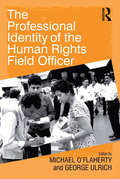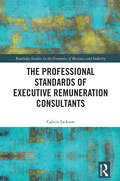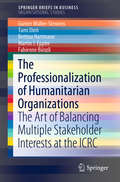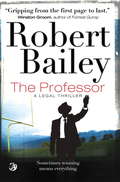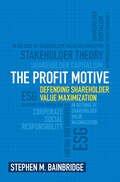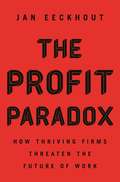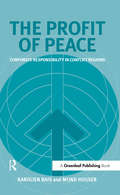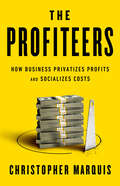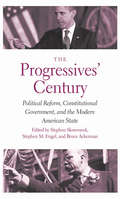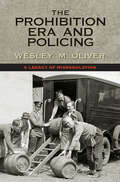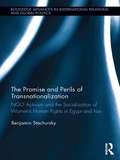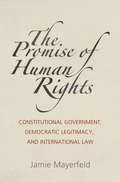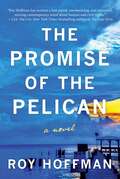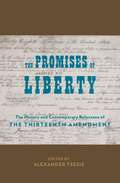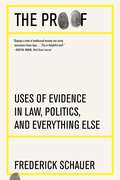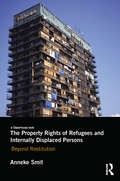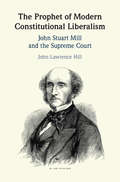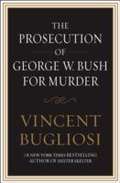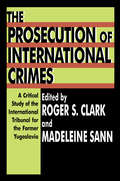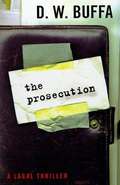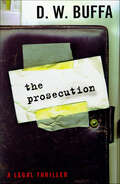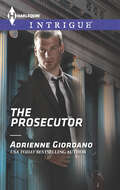- Table View
- List View
The Professional Identity of the Human Rights Field Officer
by George UlrichThe important and groundbreaking volume, The Professional Identity of the Human Rights Field Officer, completes the study of human rights field work begun in the earlier The Human Rights Field Operation: Law Theory and Practice (2007: Ashgate). Building on the critique of the field’s historical development and current situation featured in the earlier volume, O’Flaherty, Ulrich and their fellow contributors focus on the specific responsibilities of the individual human rights officer, and concentrate on vital issues of professionalism beyond the confines of any specific organization. Their expansion of the analysis in the case studies section of the first volume has resulted in an up to date global edition of significant academic interest to anyone within the field of human rights law.
The Professional Standards of Executive Remuneration Consultants (Routledge Studies in the Economics of Business and Industry)
by Calvin JacksonLove them or hate them, executive remuneration consultants are key players in remuneration committees’ pay determination processes. This book concerns the professional standards of executive remuneration consultants (and their ‘in-house’ counterparts; for example, Human Resources Director and Head of Reward) in providing remuneration committee advisory services. The author is a 25-year ‘veteran’ executive remuneration consultant, having worked around the world in this capacity (particularly in the financial services sector). This book is based on a qualitative empirical doctoral research exercise, involving 53 participants in the UK executive pay scene (including regulators, institutional shareholder bodies, proxy advisors, remuneration committees’ chairs/members, executive remuneration consultants and in-house executive reward specialists). The objective was to formulate conclusions that could be used to the benefit of UK practice and contribute to the relevant academic scholarship on executive remuneration consultants. The research covered 18 aspects, ranging from an examination of the independence of such consultants to whether there might be a specialised accreditation/qualification and/or licence to practise regime covering their services. It provides novel insights into this previously under-researched area of corporate governance/financial regulation. This book will be of interest to those involved in the UK executive remuneration scene, whether government, regulators or any of the other parties mentioned already (plus academics in universities and business schools). It is hoped too that overseas remuneration regimes that have respects in common with the UK’s will find this book useful.
The Professionalization of Humanitarian Organizations: The Art of Balancing Multiple Stakeholder Interests at the ICRC (SpringerBriefs in Business)
by Günter Müller-Stewens Tami Dinh Bettina Hartmann Martin J. Eppler Fabienne BünzliThis book offers deep insights into the functioning of humanitarian organizations (HOs) from a managerial perspective. Presenting an in-depth case study on the International Committee of the Red Cross (ICRC), it demonstrates how HOs can professionalize the management of their operations by adapting the institutional logic of private corporations and applying their tools and frameworks in the context of a non-profit-organization. The authors discuss the advantages of effective stakeholder and change management for HOs, as well as the tensions caused by conflicting institutional logics and ethical conflicts that arise as a result of a violation of the principles of an HO. The book appeals to anyone interested in managing non-governmental organizations more effectively.
The Professor
by Robert Bailey"A retired Professor of Law who hasn't tried a real case in forty years teams up with a former student who's yet to trial a case at all, in order to clear both of their names..." The Professor, introduces Thomas Jackson McMurtrie, a longtime law professor at the University of Alabama, who, 40 years after giving up a promising career as a trial lawyer to teach law students at the request of his mentor, Coach Paul "Bear" Bryant, retires to his farm an angry and bitter man, betrayed by both a Board member he mistook for a friend and his own failing health. Meanwhile, the young family of one of Tom's oldest friends is killed in a tragic collision with an 18-wheeler. Believing his career is over, Tom refers his friend to a brilliant, yet beleaguered, former student, Rick Drake, who begins to uncover that the truth behind the tragedy is buried in a tangled web of arson, bribery and greed. When a key witness is murdered on the eve of trial, the young attorney, in over his head and at the end of his rope, knows he needs help...and there's only one man who can help him. The Professor is the first in a series of tense legal thriller featuring the unusual and compelling legal team of McMurtie & Drake, combining the thrills and authenticity of a John Grisham novel for the audience that flocked to Friday Night Lights.
The Profiler: My Life Hunting Serial Killers and Psychopaths
by Pat Brown Bob AndelmanIn 1990, a young woman was strangled on a jogging path near the home of Pat Brown and her family. Brown suspected the young man who was renting a room in her house, and quickly uncovered strong evidence that pointed to him--but the police dismissed her as merely a housewife with an overactive imagination. It would be six years before her former boarder would be brought in for questioning, but the night Brown took action to solve the murder was the beginning of her life's work. Pat Brown is now one of the nation's few female criminal profilers--a sleuth who assists police departments and victims' families by analyzing both physical and behavioral evidence to make the most scientific determination possible about who committed a crime. Brown has analyzed many dozens of seemingly hopeless cases and brought new investigative avenues to light. In The Profiler, Brown opens her case files to take readers behind the scenes of bizarre sex crimes, domestic murders, and mysterious deaths, going face-to-face with killers, rapists, and brutalized victims. It's a rare, up-close, first-person look at the real world of police and profilers as they investigate crimes--the good and bad, the cover-ups and the successes.
The Profit Motive: Defending Shareholder Value Maximization
by Stephen M. BainbridgeWhat responsibility, if any, does a corporation have to society? How should corporations balance environmental, social, and governance factors? The Profit Motive addresses these questions of corporate purpose using historical, legal, and economic perspectives. Stephen M. Bainbridge enters the debate around corporate social responsibility to mount an unabashed defense of shareholder capitalism and maximizing shareholder value. The book offers context for the current questions about corporate purpose, and provides a reference going forward. Direct and corrective, The Profit Motive argues that shareholder value maximization is not only required by law, but what the law ought to require.
The Profit Paradox: How Thriving Firms Threaten the Future of Work
by Jan EeckhoutA pioneering account of the surging global tide of market power—and how it stifles workers around the worldIn an era of technological progress and easy communication, it might seem reasonable to assume that the world’s working people have never had it so good. But wages are stagnant and prices are rising, so that everything from a bottle of beer to a prosthetic hip costs more. Economist Jan Eeckhout shows how this is due to a small number of companies exploiting an unbridled rise in market power—the ability to set prices higher than they could in a properly functioning competitive marketplace. Drawing on his own groundbreaking research and telling the stories of common workers throughout, he demonstrates how market power has suffocated the world of work, and how, without better mechanisms to ensure competition, it could lead to disastrous market corrections and political turmoil.The Profit Paradox describes how, over the past forty years, a handful of companies have reaped most of the rewards of technological advancements—acquiring rivals, securing huge profits, and creating brutally unequal outcomes for workers. Instead of passing on the benefits of better technologies to consumers through lower prices, these “superstar” companies leverage new technologies to charge even higher prices. The consequences are already immense, from unnecessarily high prices for virtually everything, to fewer startups that can compete, to rising inequality and stagnating wages for most workers, to severely limited social mobility.A provocative investigation into how market power hurts average working people, The Profit Paradox also offers concrete solutions for fixing the problem and restoring a healthy economy.
The Profit Paradox: How Thriving Firms Threaten the Future of Work
by Jan EeckhoutA pioneering account of the surging global tide of market power—and how it stifles workers around the worldIn an era of technological progress and easy communication, it might seem reasonable to assume that the world’s working people have never had it so good. But wages are stagnant and prices are rising, so that everything from a bottle of beer to a prosthetic hip costs more. Economist Jan Eeckhout shows how this is due to a small number of companies exploiting an unbridled rise in market power—the ability to set prices higher than they could in a properly functioning competitive marketplace. Drawing on his own groundbreaking research and telling the stories of common workers throughout, he demonstrates how market power has suffocated the world of work, and how, without better mechanisms to ensure competition, it could lead to disastrous market corrections and political turmoil.The Profit Paradox describes how, over the past forty years, a handful of companies have reaped most of the rewards of technological advancements—acquiring rivals, securing huge profits, and creating brutally unequal outcomes for workers. Instead of passing on the benefits of better technologies to consumers through lower prices, these “superstar” companies leverage new technologies to charge even higher prices. The consequences are already immense, from unnecessarily high prices for virtually everything, to fewer startups that can compete, to rising inequality and stagnating wages for most workers, to severely limited social mobility.A provocative investigation into how market power hurts average working people, The Profit Paradox also offers concrete solutions for fixing the problem and restoring a healthy economy.
The Profit of Peace: Corporate Responsibility in Conflict Regions
by Karolien Bais Mijnd HuijserIt may seem a strange notion to give the private sector a role in conflict prevention or resolution, but multinational corporations (MNCs) do have some characteristics that make them good partners in a well-designed strategy for peace and stability. By focusing on their core competencies, their presence in a conflict region can help to provide prosperity for rebuilding society and its institutions, and improved respect for human rights. This book is not a song of praise for MNCs in general. There is a litany of examples of companies that feel no shame in profiting from conflicts by trading weapons or illegal resources, that prolong war by supporting one or other of the parties, or that are only in a war-torn country because the lawlessness suits them well. Even companies that refrain from such criminal activities cannot be envisaged as potential peace-builders if they profit unscrupulously from cheap labour or cheap subcontractors. Instead, this book is about corporations that are disposed to ethical, responsible entrepreneurship: companies that balance their desire for profit with compliance with international business and human rights standards and with a genuine investment in local workers, environmental protection, social development and stability. Worldwide about 60,000 MNCs work in over 70 conflict regions. They operate in regions where social unrest is harshly repressed, where outright fighting takes place, or where civil war has recently ended. Whatever the attitude of multinationals and whatever their area of business, they influence conflicts or are themselves influenced by conflicts. Even if they do not directly invest in or trade with a conflict region, they always risk being associated with those conflicts. The Profit of Peace examines how multinationals can use their core business competencies to promote peace and stability in conflict regions and what role – if any – business has in diplomacy. To investigate these questions the authors interviewed CEOs and high-level managers of multinationals working in 'challenging' countries such as Afghanistan, Burma and Rwanda. The interviewees provided extraordinarily candid views on both the practical and ethical issues that occur when operating under extremely volatile circumstances. The lessons learned by these managers make the book invaluable for any manager working for a large company in a region of unrest. Two vital elements emerged. Firstly, the ability to manage cultural differences is a key factor for success. Without a keen sense of the differences in management styles, in perceptions of ethics and morality, and in the values behind political opinions, every peace effort is doomed to fail. Secondly, ethically correct decisions do not necessarily lead to ethically correct results. It was not the objective of the authors to judge which of the parties in conflict regions are right or wrong. Rather, they wanted to find out what kind of attitude at the end of the day contributes most effectively to conflict prevention or stabilisation of a region. In other words, in this book corporate responsibility is measured by the results and not by the intentions. All of the CEOs interviewed for this book were well aware of the fact that their companies operating in conflict regions would always influence the conflict one way or another. This awareness in itself is quite extraordinary, and it shows that the indifferent comment "business is business" by and large belongs to a past era. Also extraordinary was that the managers allowed such a frank look into their sanctuary, since this candour makes them all the more vulnerable to criticism. Through the information from the interviewees and from other managers who have experience in conflict regions, the book outlines the ingredients for an approach that can best lead to a solution of conflicts and to greater stability. It will only be in the long run that we will be able to establish how successful the new profession of 'business diplomat' can be, but in the m
The Profiteers: How Business Privatizes Profits and Socializes Costs
by Christopher MarquisAn exposé of how society pays for corporations' "free lunch" and the cost of environmental damage, low wages, systemic discrimination, and cheap goods. In an age when business leaders solemnly profess dedication to principles of environmental and social justice, Christopher Marquis&’s provocative investigation into the real costs of doing business reveals the way that leaders of the corporate world gaslight to evade responsibilities by privatizing profits and socializing costs. &“Who pays?&” for the resulting climate and environmental damage, racism, low wages, and cheap goods: the average citizen and the taxpayer. By bringing to light ideas that today are on the fringe but rapidly making their way into the mainstream, Marquis outlines a new regenerative paradigm for business in society. He tells of a group of pioneers trying to not just reform but transform the way business is conducted all over the world. By taking novel actions to reimagine business operations in responsible ways, minimize their negative impacts, and create new ways for business to properly absorb their hidden costs, these leaders provide blueprints to move the needle on vexing social and environmental issues. What&’s in it for leaders of the corporate world? The model of reform presented provides clear guidance on how to get ahead of the curve as an emerging economic order is formed. No business can lead from the front if it is morally-backward looking. History has shown time and again that those who get out in front of emerging changes in our social and environmental landscape protect themselves from inevitable eclipse.
The Progressives' Century: Political Reform, Constitutional Government, and the Modern American State
by Bruce Ackerman Stephen M. Engel Stephen SkowronekA landmark work on how the Progressive Era redefined the playing field for conservatives and liberals alike. During the 1912 presidential campaign, Progressivism emerged as an alternative to what was then considered an outmoded system of government. A century later, a new generation of conservatives criticizes Progressivism as having abandoned America's founding values and miring the government in institutional gridlock. In this paradigm-shifting book, renowned contributors examine a broad range of issues, including Progressives' interpretation of the Constitution, their expansion and redistribution of individual rights, and reforms meant to shift power from political parties to ordinary citizens.
The Prohibition Era and Policing: A Legacy of Misregulation
by Wesley M. OliverLegal precedents created during Prohibition have lingered, leaving search-and-seizure law much better defined than limits on police use of force, interrogation practices, or eyewitness identification protocols. An unlawful trunk search is thus guarded against more thoroughly than an unnecessary shooting or a wrongful conviction.Intrusive searches for alcohol during Prohibition destroyed middle-class Americans' faith in police and ushered in a new basis for controlling police conduct. State courts in the 1920s began to exclude perfectly reliable evidence obtained in an illegal search. Then, as Prohibition drew to a close, a presidential commission awakened the public to torture in interrogation rooms, prompting courts to exclude coerced confessions irrespective of whether the technique had produced a reliable statement.Prohibition's scheme lingered long past the Roaring '20s. Racial tensions and police brutality were bigger concerns in the 1960s than illegal searches, yet when the Supreme Court imposed limits on officers' conduct in 1961, searches alone were regulated. Interrogation law during the 1960s, fundamentally reshaped by the Miranda ruling, ensured that suspects who invoked their rights would not be subject to coercive tactics, but did nothing to ensure reliable confessions by those who were questioned. Explicitly recognizing that its decisions excluding evidence had not been well-received, the Court in the 1970s refused to exclude identifications merely because they were made in suggestive lineups. Perhaps a larger project awaits—refocusing our rules of criminal procedure on those concerns from which Prohibition distracted us: conviction accuracy and the use of force by police.
The Prohibition Era and Policing: A Legacy of Misregulation
by Wesley M. OliverLegal precedents created during Prohibition have lingered, leaving search-and-seizure law much better defined than limits on police use of force, interrogation practices, or eyewitness identification protocols. An unlawful trunk search is thus guarded against more thoroughly than an unnecessary shooting or a wrongful conviction. Intrusive searches for alcohol during Prohibition destroyed middle-class Americans' faith in police and ushered in a new basis for controlling police conduct. State courts in the 1920s began to exclude perfectly reliable evidence obtained in an illegal search. Then, as Prohibition drew to a close, a presidential commission awakened the public to torture in interrogation rooms, prompting courts to exclude coerced confessions irrespective of whether the technique had produced a reliable statement. Prohibition's scheme lingered long past the Roaring '20s. Racial tensions and police brutality were bigger concerns in the 1960s than illegal searches, yet when the Supreme Court imposed limits on officers' conduct in 1961, searches alone were regulated. Interrogation law during the 1960s, fundamentally reshaped by the Miranda ruling, ensured that suspects who invoked their rights would not be subject to coercive tactics, but did nothing to ensure reliable confessions by those who were questioned. Explicitly recognizing that its decisions excluding evidence had not been well-received, the Court in the 1970s refused to exclude identifications merely because they were made in suggestive lineups. Perhaps a larger project awaits—refocusing our rules of criminal procedure on those concerns from which Prohibition distracted us: conviction accuracy and the use of force by police.
The Promise and Perils of Transnationalization: NGO Activism and the Socialization of Women’s Human Rights in Egypt and Iran (Routledge Advances in International Relations and Global Politics)
by Benjamin StachurskyTo date, most constructivist international relations studies have characterized the influence of transnationalism on domestic forms of activism as uniformly positive. In particular, transnational interactions are viewed as positive factors for the development and daily impact of gender activism. Benjamin Stachursky’s book questions the unvarying positive view of transnationalism on domestic forms of activism, arguing for a more nuanced analysis that permits an understanding of the enabling and restricting effects of transnationalism. Stachursky also challenges the dominant view of civil society as normatively homogenous by illustrating the complex relationships and conflicts that exist between NGOs and other civil society representatives. He grounds his theoretical arguments with a comparative case study on women’s rights activism in Egypt and Iran, which uses semi-structured interviews with women’s rights activists in the two countries and analysis of documentation by local political and societal actors. Looking at the period from the mid-1980s up to present developments such as the Arab Spring, Stachursky analyzes the emergence and development of NGO activism in Egypt and Iran, the social, political, and legal context of NGO activism, and key domestic debates on the impact and legitimacy of the actors operating in women’s rights activism. By closely examining the ambivalent relationship between transnationalism and human rights organizations, Stachursky proves that transnationalization has both enabling and constraining effects on the domestic legitimacy of women’s rights activists and on their ability to create meaningful social and political change.
The Promise of Human Rights: Constitutional Government, Democratic Legitimacy, and International Law (Pennsylvania Studies in Human Rights)
by Jamie MayerfeldInternational human rights law is often criticized as an infringement of constitutional democracy. In The Promise of Human Rights, Jamie Mayerfeld argues to the contrary that international human rights law provides a necessary extension of checks and balances and therefore completes the domestic constitutional order. In today's world, constitutional democracy is best understood as a cooperative project enlisting both domestic and international guardians to strengthen the protection of human rights. <P><P>Reasons to support this view may be found in the political philosophy of James Madison, the principal architect of the U.S. Constitution.The Promise of Human Rights presents sustained theoretical discussions of human rights, constitutionalism, democracy, and sovereignty, along with an extended case study of divergent transatlantic approaches to human rights. Mayerfeld shows that the embrace of international human rights law has inhibited human rights violations in Europe whereas its marginalization has facilitated human rights violations in the United States. <P><P>A longstanding policy of "American exceptionalism" was a major contributing factor to the Bush administration's use of torture after 9/11.Mounting a combination of theoretical and empirical arguments, Mayerfeld concludes that countries genuinely committed to constitutional democracy should incorporate international human rights law into their domestic legal system and accept international oversight of their human rights practices.
The Promise of the Pelican: A Novel
by Roy HoffmanFor fans of Harper Lee and Rita Mae Brown, Roy Hoffman's new novel is steeped in a sense of place--coastal Alabama--with its rich tapestry of characters caught in a web of justice not for all.Early Praise for The Promise of the Pelican: "Roy Hoffman has written a fast-paced, mesmerizing and incredibly moving contemporary novel about human and civil rights,"-- bestselling author Lee Smith "A thrilling novel, with characters as memorable as those of Shakespearean tragedy...I could not put it down." --Sena Jeter Naslund, author of Ahab's Wife At once a literary crime novel and an intergenerational family drama, The Promise of the Pelican is set in the multicultural South, where justice might depend on the color of your skin and your immigration status. Hank Weinberg is a modern day Atticus Finch, recently retired as a defense attorney in Mobile, Alabama, and a Holocaust survivor, who fled the Nazis as a young child. With his daughter in rehab, he's now taking care of his special needs grandson. Mourning his dead wife, spending mornings fishing on the pier with other octogenarians, he passes the rest of his days watching over his sweet grandson with the help of Lupita, a young Honduran babysitter. When her brother Julio, an undocumented immigrant, is accused of murder, Hank must return to the courtroom to defend him while also trying to save his daughter and grandson's life from spinning out of control. The Promise of the Pelican takes its title from the legend that a pelican will pierce its own breast for blood to feed its starving chicks, a metaphor for one old man who risks all to save the vulnerable. In a crisp prose style Harper Lee called "lean and clean," Hoffman writes from an enormous well of compassion. He fills his new novel with a cast of finely drawn characters of all ages and abilities facing life's harshest challenges and rising to meet them with dignity.
The Promises of Liberty: The History and Contemporary Relevance of the Thirteenth Amendment
by Alexander TsesisIn these original essays, America's leading historians and legal scholars reassess the ratification of the Thirteenth Amendment and its relevance to issues of liberty, justice, and equality. The Thirteenth Amendment abolished slavery in the United States, reasserting the radical, egalitarian dimensions of the Constitution. It also laid the foundations for future civil rights and social justice legislation. Yet subsequent reinterpretation and misappropriation have curbed more substantive change. With constitutional jurisprudence undergoing a revival, The Promises of Liberty provides a full portrait of the Thirteenth Amendment and its potential for ensuring liberty.The collection begins with Pulitzer Prize-winning historian David Brion Davis, who discusses the failure of the Thirteenth Amendment to achieve its framers' objectives. The next piece, by Alexander Tsesis, provides a detailed account of the Amendment's revolutionary character. James M. McPherson, another Pulitzer recipient, recounts the influence of abolitionists on the ratification process, and Paul Finkelman focuses on who freed the slaves and President Lincoln's commitment to ending slavery. Michael Vorenberg revisits the nineteenth century's understanding of freedom and citizenship and the Amendment's surprisingly small role in the Reconstruction and post-Reconstruction periods. William M. Wiecek shows how the Supreme Court's narrow interpretation once rendered the guarantee of freedom nearly illusory, and the collection's third Pulitzer Prize winner, David M. Oshinsky, explains how peonage undermined the prohibition against compulsory service. Subsequent essays relate the Thirteenth Amendment to congressional authority, hate crimes legislation, the labor movement, and immigrant rights. These chapters analyze unique features of the amendment along with its elusive meanings and affirm its power to reform criminal and immigration law, affirmative action policies, and the protection of civil liberties.
The Proof: Uses of Evidence in Law, Politics, and Everything Else
by Frederick SchauerIn a world awash in “fake news,” where public figures make unfounded assertions as a matter of course, a preeminent legal theorist ranges across the courtroom, the scientific laboratory, and the insights of philosophers to explore the nature of evidence and show how it is credibly established. In the age of fake news, trust and truth are hard to come by. Blatantly and shamelessly, public figures deceive us by abusing what sounds like evidence. Preeminent legal theorist Frederick Schauer proposes correctives, drawing on centuries of inquiry into the nature of evidence. Evidence is the basis of how we know what we think we know, but evidence is no simple thing. Evidence that counts in, say, the policymaking context is different from evidence that stands up in court. Law, science, historical scholarship, public and private decisionmaking—all rely on different standards of evidence. Exploring diverse terrain including vaccine and food safety, election-fraud claims, the January 2021 events at the US Capitol, the reliability of experts and eyewitnesses, climate science, art authentication, and even astrology, The Proof develops fresh insights into the challenge of reaching the truth. Schauer combines perspectives from law, statistics, psychology, and the philosophy of science to evaluate how evidence should function in and out of court. He argues that evidence comes in degrees. Weak evidence is still some evidence. The absence of evidence is not evidence of absence, but prolonged, fruitless efforts to substantiate a claim can go some distance in proving a negative. And evidence insufficient to lock someone up for a crime may be good enough to keep them out of jail. This book explains how to reason more effectively in everyday life, shows why people often reason poorly, and takes evidence as a pervasive problem, not just a matter of legal rules.
The Property Rights of Refugees and Internally Displaced Persons: Beyond Restitution
by Anneke SmitThe Property Rights of Refugees and Internally Displaced Persons: Beyond Restitution pursues a rigorous examination of the various ways in which the protection of housing and property rights can contribute to durable solutions to displacement.
The Prophet of Modern Constitutional Liberalism: John Stuart Mill and the Supreme Court
by John Lawrence HillJohn Stuart Mill is the father of modern liberalism. His most remembered work, On Liberty, which was published in 1859, changed the course of the liberal tradition. What is less well-known is that his ideas have profoundly influenced the American constitutional rights tradition of the latter half of the twentieth century. Mill's 'harm principle' inspired the constitutional right to privacy recognized in Griswold v Connecticut, Roe vs Wade and other cases. His defense of freedom of expression influenced Justices Holmes, Brandeis, Douglas, Brennan and others and led to greatly expanded freedom of speech in the twentieth century. Finally, Mill was an ardent feminist whose last important work, The Subjection of Women, was a full-scale and, for its time, radical defense of complete gender equality. This is a book for lawyers who want to understand the intellectual origins of modern constitutional rights, and for political philosophers interested in the constitutional implications of Mill's conception of freedom.
The Prosecution of George W. Bush for Murder
by Vincent T. BugliosiBugliosi sets forth the legal architecture and incontrovertible evidence that President Bush took this nation to war in Iraq under false pretenses - a war that has not only caused the deaths of American soldiers but also over 100,000 innocent Iraqi men, women, and children; cost the United States over one trillion dollars thus far with no end in sight; and alienated many American allies in the Western world.
The Prosecution of International Crimes: A Critical Study of the International Tribunal for the Former Yugoslavia (The\prosecution Of International Crimes Ser.)
by Madeleine SannThe post-World War Two period has witnessed numerous armed conflicts characterized by extensive violations of relevant obligatory international norms. Responding to these events, the United Nations General Assembly created a permanent international court in 2003, with jurisdiction over selected international crimes. The International Tribunal for the Former Yugoslavia was a precursor to this permanent court. It was established for the purpose of "prosecuting persons responsible for serious violations of international humanitarian law committed in the territory of the former Yugoslavia." As a precedent for what we may expect in the future, it deserves special attention from a historical, political, and especially an international law point of view.The Prosecution of International Crimes comprehensively examines the creation, mandate, and challenges of the International Tribunal for the Former Yugoslavia. Derived from a special issue of Criminal Law Forum: An International Journal, a peer-review journal dedicated to the advancement of criminal law theory, practice, and reform throughout the world, it is now available in paperback.
The Prosecution, A Legal Thriller (Joseph Antonelli #2)
by D. W. BuffaFrom the best-selling author of The Defense, a spellbinding sequel. It was a one-way ticket out of his self-imposed isolation and into the courtroom on the right side of justice. It was a favor for his old friend Judge Horace Woolner. It was a once-in-a-lifetime chance to serve as special prosecutor in a case against a man sworn to uphold the law, Marshall Goodwin, the chief deputy district attorney accused of having his former wife murdered. It was an opportunity Joseph Antonelli couldn't walk away from. But Antonelli is walking into more than he bargained for. The Goodwin case renews his appetite for the practice of law, and although Antonelli is determined to remain on the side of justice, there are many shades between right and wrong. And Antonelli may be over his head when Russell Gray, an urbane, worldly, and wealthy man from a prominent Portland family, is found murdered in his living room. Horace Woolner's wife stands accused of the crime. With justice and love on the line, the stakes couldn't be higher. In this stunning look at our legal system and our hearts, D. W. Buffa delivers on the promise of The Defense and takes us into the dark recesses of our courtrooms and our souls, where there are no easy answers.
The Prosecution: A Legal Thriller
by D. W. BuffaA defense attorney plays for the other team when a DA is accused of murder in this “electrically charged courtroom drama” in the Edgar Award–nominated series (The New York Times).It was a one-way ticket out of his self-imposed isolation and into the courtroom on the right side of justice. It was a favor for his old friend Judge Horace Woolner. It was a once-in-a-lifetime chance to serve as special prosecutor in a case against a man sworn to uphold the law—Marshall Goodwin, the chief deputy district attorney accused of having his former wife murdered. It was an opportunity Joseph Antonelli couldn’t walk away from.But Antonelli is walking into more than he bargained for—and when a worldly, wealthy man from a prominent Portland family is found dead and the judge’s wife is accused, he may be in over his head . . .“A thorough look at the legal system from an insider’s viewpoint . . . dynamic writing and well-rounded characterization.” —Library Journal“Buffa’s spare observation, crackling dialogue, and shadowy circle of criminals, lawyers, and lovers keep you riveted.” —Entertainment Weekly“Explosive . . . Buffa is one of a kind.” —San Jose Mercury News
The Prosecutor
by Adrienne GiordanoA Chicago law student tangles with a sexy attorney as she works to free an innocent man in this romantic suspense tale by a USA Today–bestselling author. Chicago assistant state’s attorney Zac Hennings just got handed a political hot potato: keeping the convicted murderer in a high-profile case behind bars. He’s up against his most formidable—and alluring—adversary. First-year law student Emma Sinclair is passionately fighting to free her brother. But she needs the take-no-prisoners prosecutor’s help.Caught between attraction and letting a killer go free, Zac walks a tightrope. Until evidence surfaces that the real culprit’s still out there. With his career and Emma’s life on the line, Zac races to right a terrible wrong. Refusing to back down, he’ll bring a cunning lawbreaker to justice—or die trying.
